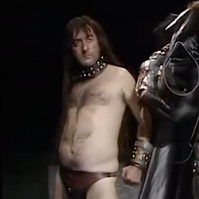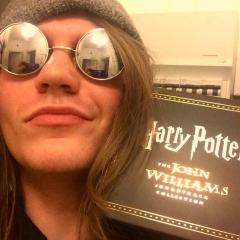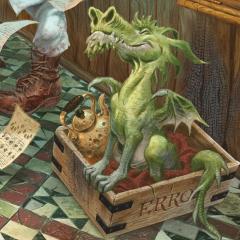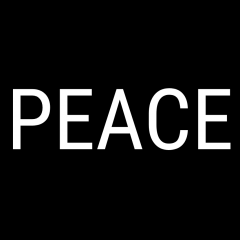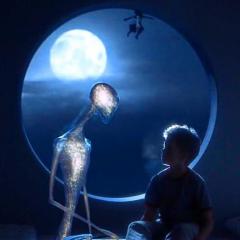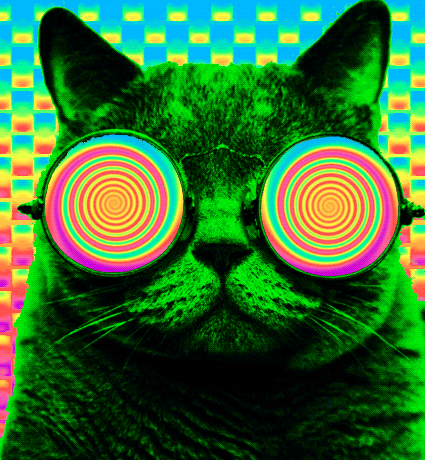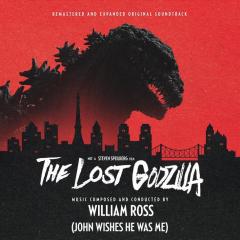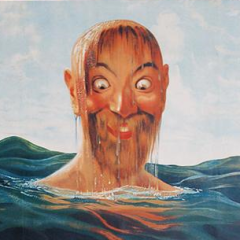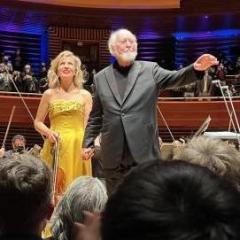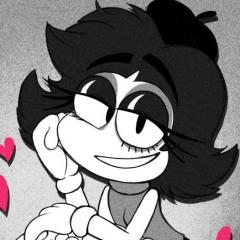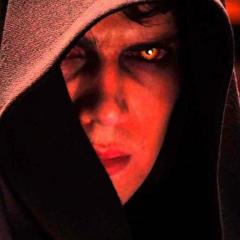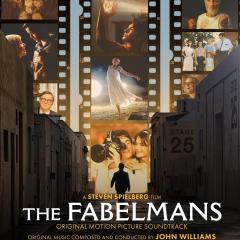-
Posts
375 -
Joined
-
Days Won
2
Reputation Activity
-
 Skelly got a reaction from Once in Harry Potter 7CD Collection - MUSIC discussion
Skelly got a reaction from Once in Harry Potter 7CD Collection - MUSIC discussion
The shawm and tambourine tracks are interesting because they're examples of how Cuaron blurs the line between underscore and diegetic music (or even sound effects) in a way that hasn't been popular or standard pretty much since the 1930s. Like Hitchcock famously asked, "Where is the music coming from?" The shawm is ostensibly coming from somewhere in the pub, but then it slides into orchestral underscore and for a moment the two are laid on top each other. The Dufay track seems to be normal underscore at first as Buckbeak nuzzles Harry, but suddenly one cut later it's paranormal music that constantly follows the headless horsemen. Or the lute track, where it isn't until the shot's conclusion that we see the "underscore" is actually coming from someone randomly playing his own instrument. Or the Boggart scene where the difference between underscore and source music is the difference between fear and fun, but when the two intertwine during Harry's turn -- where's the music coming from then? There are other examples but those are the most obvious.
I think the opposite of that might be part of why the Diagon Alley music in the first movie was dropped and replaced with the Great Hall cue. Harry steps out of the Leaky Cauldron (which had obvious source music) and into Diagon Alley, and even though Williams puts an orchestral delineation up as the brick wall disassembles, he goes back into wizardly music that tells us more what Harry is probably hearing as opposed to what he's feeling. I think the filmmakers wanted to keep the score firmly from Harry's perspective, and the only cue I can think of that deviates from that is "Filch's Fond Remembrance" (which was cut down a lot in the actual movie).
-
 Skelly got a reaction from crlbrg in Harry Potter 7CD Collection - MUSIC discussion
Skelly got a reaction from crlbrg in Harry Potter 7CD Collection - MUSIC discussion
The shawm and tambourine tracks are interesting because they're examples of how Cuaron blurs the line between underscore and diegetic music (or even sound effects) in a way that hasn't been popular or standard pretty much since the 1930s. Like Hitchcock famously asked, "Where is the music coming from?" The shawm is ostensibly coming from somewhere in the pub, but then it slides into orchestral underscore and for a moment the two are laid on top each other. The Dufay track seems to be normal underscore at first as Buckbeak nuzzles Harry, but suddenly one cut later it's paranormal music that constantly follows the headless horsemen. Or the lute track, where it isn't until the shot's conclusion that we see the "underscore" is actually coming from someone randomly playing his own instrument. Or the Boggart scene where the difference between underscore and source music is the difference between fear and fun, but when the two intertwine during Harry's turn -- where's the music coming from then? There are other examples but those are the most obvious.
I think the opposite of that might be part of why the Diagon Alley music in the first movie was dropped and replaced with the Great Hall cue. Harry steps out of the Leaky Cauldron (which had obvious source music) and into Diagon Alley, and even though Williams puts an orchestral delineation up as the brick wall disassembles, he goes back into wizardly music that tells us more what Harry is probably hearing as opposed to what he's feeling. I think the filmmakers wanted to keep the score firmly from Harry's perspective, and the only cue I can think of that deviates from that is "Filch's Fond Remembrance" (which was cut down a lot in the actual movie).
-

-
 Skelly got a reaction from ragoz350 in Harry Potter 7CD Collection - MUSIC discussion
Skelly got a reaction from ragoz350 in Harry Potter 7CD Collection - MUSIC discussion
It sort of sounds like an extension of this bit...
... but one where the evil climax is suppressed and the energy is sucked out of the room. Who knows how finished the VFX were on the cut Williams was working on, but it sounds like he was trying to capture the idea of Harry bearing a huge shield and using it to force the Dementor back into its trunk. Less like a victory and more like a tension has been relieved. In the end it looks less physically demanding than that, and I think Cuaron wanted the concept of a patronus to be more psychological anyway. That way it ties into Harry's self-confidence about his parenthood and identity, which would explain why he wanted Williams to do a version with the "Family Theme" on triumphant brass instead.
-
 Skelly got a reaction from bollemanneke in Harry Potter 7CD Collection - MUSIC discussion
Skelly got a reaction from bollemanneke in Harry Potter 7CD Collection - MUSIC discussion
It sort of sounds like an extension of this bit...
... but one where the evil climax is suppressed and the energy is sucked out of the room. Who knows how finished the VFX were on the cut Williams was working on, but it sounds like he was trying to capture the idea of Harry bearing a huge shield and using it to force the Dementor back into its trunk. Less like a victory and more like a tension has been relieved. In the end it looks less physically demanding than that, and I think Cuaron wanted the concept of a patronus to be more psychological anyway. That way it ties into Harry's self-confidence about his parenthood and identity, which would explain why he wanted Williams to do a version with the "Family Theme" on triumphant brass instead.
-
 Skelly got a reaction from Smeltington in Harry Potter 7CD Collection - MUSIC discussion
Skelly got a reaction from Smeltington in Harry Potter 7CD Collection - MUSIC discussion
It sort of sounds like an extension of this bit...
... but one where the evil climax is suppressed and the energy is sucked out of the room. Who knows how finished the VFX were on the cut Williams was working on, but it sounds like he was trying to capture the idea of Harry bearing a huge shield and using it to force the Dementor back into its trunk. Less like a victory and more like a tension has been relieved. In the end it looks less physically demanding than that, and I think Cuaron wanted the concept of a patronus to be more psychological anyway. That way it ties into Harry's self-confidence about his parenthood and identity, which would explain why he wanted Williams to do a version with the "Family Theme" on triumphant brass instead.
-
 Skelly got a reaction from Once in Harry Potter 7CD Collection - MUSIC discussion
Skelly got a reaction from Once in Harry Potter 7CD Collection - MUSIC discussion
There was definitely something in that scene that was added in late. I don't think anything was left intentionally unscored, least of all the dialogue; almost all the dialogue in the movie is underscored once we reach Hogwarts, and if it isn't, it's usually because the music was dialed out!
My guess is that Williams scored a cut where Filch's cat didn't begin to follow Harry. Maybe Harry nearly bumped into Snape/Quirrel on his own (and note that the cat seems to suddenly disappear in the final cut). Here's a quick and dirty edit of what I think Williams was trying to underscore...
https://drive.google.com/open?id=1ZzCQJvEmp066iRyT8hnocEluinYzbomz
The actual movie tries to have three big crescendo moments with the music: when the cat follows Harry; when Snape reaches out for Harry; and when all the faculty leave the corridor at the end. The cue as written only has one. When you line it up with the third instance, the little quote of Harry's theme plays about when Snape grabs empty air, which makes sense to me and is way more fun than what they did in the final cut.
-
 Skelly got a reaction from DolceMecha in Harry Potter 7CD Collection - MUSIC discussion
Skelly got a reaction from DolceMecha in Harry Potter 7CD Collection - MUSIC discussion
There was definitely something in that scene that was added in late. I don't think anything was left intentionally unscored, least of all the dialogue; almost all the dialogue in the movie is underscored once we reach Hogwarts, and if it isn't, it's usually because the music was dialed out!
My guess is that Williams scored a cut where Filch's cat didn't begin to follow Harry. Maybe Harry nearly bumped into Snape/Quirrel on his own (and note that the cat seems to suddenly disappear in the final cut). Here's a quick and dirty edit of what I think Williams was trying to underscore...
https://drive.google.com/open?id=1ZzCQJvEmp066iRyT8hnocEluinYzbomz
The actual movie tries to have three big crescendo moments with the music: when the cat follows Harry; when Snape reaches out for Harry; and when all the faculty leave the corridor at the end. The cue as written only has one. When you line it up with the third instance, the little quote of Harry's theme plays about when Snape grabs empty air, which makes sense to me and is way more fun than what they did in the final cut.
-
 Skelly got a reaction from oierem in Harry Potter 7CD Collection - MUSIC discussion
Skelly got a reaction from oierem in Harry Potter 7CD Collection - MUSIC discussion
There was definitely something in that scene that was added in late. I don't think anything was left intentionally unscored, least of all the dialogue; almost all the dialogue in the movie is underscored once we reach Hogwarts, and if it isn't, it's usually because the music was dialed out!
My guess is that Williams scored a cut where Filch's cat didn't begin to follow Harry. Maybe Harry nearly bumped into Snape/Quirrel on his own (and note that the cat seems to suddenly disappear in the final cut). Here's a quick and dirty edit of what I think Williams was trying to underscore...
https://drive.google.com/open?id=1ZzCQJvEmp066iRyT8hnocEluinYzbomz
The actual movie tries to have three big crescendo moments with the music: when the cat follows Harry; when Snape reaches out for Harry; and when all the faculty leave the corridor at the end. The cue as written only has one. When you line it up with the third instance, the little quote of Harry's theme plays about when Snape grabs empty air, which makes sense to me and is way more fun than what they did in the final cut.
-
 Skelly got a reaction from crumbs in THE LAST JEDI Trailer 2 MUSIC discussion
Skelly got a reaction from crumbs in THE LAST JEDI Trailer 2 MUSIC discussion
The music companies get themselves out there by producing DVDs of their tracks (usually in album format - they'll have their team write twelve tracks, maybe in a particular emotional tone, and give that collection an album title) and sending them to studios. From what I understand, Disney can't "send the trailer", at least the way you probably mean it, to several companies to start out with because it doesn't exist yet; they're still trying to figure out what they want it to be. Footage might not even be available yet - they might only have storyboard and script to use.
But yeah, usually there will be several trailer houses which are trying to all try to get the job and pitch musical ideas based off of whatever directions Disney might give them. There's a difference between a trailer house and a music production company like Twelve Titans though; I don't think Twelve Titans would be involved at all in that early process, it's not until when Disney locks down what they like (and ask Felix Erskine to come aboard since they liked his TFA trailer music) that their music is licensed out, and custom tweaks and whatever can be done. If you're really unlucky you can be all set to have your music in a trailer, but then it goes to focus testing or something, and they decide that audiences will hate the music and they go in a different direction.
-
 Skelly got a reaction from Once in Harry Potter - Unused Music Restored
Skelly got a reaction from Once in Harry Potter - Unused Music Restored
The most confusing Death Hallows moment for me is in the graveyard scene, when they devote a moment to Hermione looking at one of the Peverell graves. I will never understand why they did that; the three brothers in the tale are never identified as having that name, nor, as bollemanneke said, are the Deathly Hallows even brought up again until Harry somehow finds himself holding the Resurrection Stone. The editing was incredibly uncouth for those two films.
-
 Skelly got a reaction from Once in Harry Potter - Unused Music Restored
Skelly got a reaction from Once in Harry Potter - Unused Music Restored
Since Alex asked (sort of), here are all the sound bites given for Prisoner of Azkaban. Unfortunately the nature of the feature is such that 'real' information is scant, and anything and everything is presented in sound bites from these interviews. I imagine these people all had a lot to say and only a precious few seconds were retained for the final product. At least we got what we got.
On 'Aunt Marge's Waltz':
Williams: The third Harry Potter film... there were a few off-the-edges experiments in that thing... we just thought a sort of grand oom-pah-pah, blown-up waltz would be fun to do. When we think of a waltz we think of it being light and floating. This is a waltz that is a bit leaden! *chuckles*
On the 'Knight Bus' sequence:
Cuaròn: We were discussing what to do with the Knight Bus, and I said, 'Well, what about if we go and we depart a little bit and go a little acid jazz?'... And it was so much fun, the scoring of that. He had a big huge brass band. The biggest brass band I'd ever seen in my life, playing all this music that is funny, is spooky! It's a really bizarre piece of music.
William Ross: John is a terrific jazz pianist. He's somebody with a tremendous command of the vocabulary of jazz.
Marcia Crayford: John brought in saxophones... there was an accordion so you get this wonderful squeezy noise when the Knight Bus does this [makes flattening motion].
Williams: When we recorded the music with the orchestra, I thought Alfonso would tear his hair our and say, 'What is this crazy thing?'; he loved it. It was the quintessential piece of silliness.
On 'Double Trouble':
Cuaròn: When we were going to establish the new year at Hogwarts, we had the idea of involving a choir. And we had the kids singing, and there were some toads that were doing, like, some of the rhythms. And we were thinking about what would be the text, and... I said, 'Well, there's the Double Trouble that one of the witches sing in "Macbeth". And when I suggested that, John Williams, he [rings?] me and says, 'Okay, this is the one. This is it.'... And it was so extraordinary when he did that actually; that became the tagline when they were promoting the film. In the posters is "Something Wicked This Way Comes".
Emma Watson: I remember particularly watching the trailer, that that was the beginning of it. I remember that being really eerie, and ominous, and exciting and dark, and that getting me excited to see it.
On 'Buckbeak's Flight' [ostensibly]:
Williams: The performance of orchestras in films... when they are infused with some magic, like the great live performance, it will do something for the film, I firmly believe... But if you turn the lights out and can't see, and you turn the vocals off, and all you hear is the orchestra, you realize you're hearing a world class performance; a virtuosic performance that supports these scenes, these characters, and locations... the action: flying and so on. The orchestra is flying with them.
-
 Skelly got a reaction from Once in Harry Potter - Unused Music Restored
Skelly got a reaction from Once in Harry Potter - Unused Music Restored
It's been done very well by Fennel-Ka for Lord of the Rings and Star Wars, but I don't believe anyone's ever tried something like it for Harry Potter!
I thought it would be interesting to restore the unused music while also retaining dialogue/FX to give you an idea of how it all could have meshed together sound-wise, as opposed to just having music-only tracks. If people would prefer to have me not bother keeping the dialogue and sound effects in the mix, I'll do that in the future.
Here are a few examples from each of the films; I'll be updating the thread throughout the next few weeks with more.
PHILOSOPHER'S STONE
"Logos"
https://drive.google.com/open?id=0Bx_2TC4QmNqkZVk4TWRILTczcms
Williams originally intended for the WB logo to be paired with an alluring celeste rather than a more orchestral arrangement of Hedwig's Theme.
"The Beach"
https://drive.google.com/open?id=0Bx_2TC4QmNqkNFdsNlVGUmEteEE
The opening portion of this cue was dialed out, and is introduced only when the Family Theme is played. Given that the mail delivery sequence essentially just repeats Hedwig's Theme over and over again, it was probably decided that another quotation of it would have been fatiguing.
"You're A Wizard Harry"
https://drive.google.com/open?id=0Bx_2TC4QmNqkMUZXa0djeWFVYWs
The first 40 seconds or so of this cue are used in the film, before it segues to the (tracked) unused logo music, and then the rest of the scene goes unscored. The cue is dialed back in when Hagrid points his umbrella at Vernon. I have no idea why this decision was made; I think the rest of the music complements the scene very well!
"Diagon Alley"
https://drive.google.com/open?id=0Bx_2TC4QmNqkNEhTdlZjMUY1eFU
This is perhaps the most infamous music edit in the film. When brainstorming what to write for this cue, instead of capturing Harry's awe and wonder of the place, Williams imagined what a small wizard's ensemble might sound like if one were performing in Diagon Alley. There are plenty more opportunities in the film to listen to Harry's reactions to the wizarding world, but not as many chances to listen to the world as experienced wizards hear it. Of course, with the decision to track music in from a couple cues in the final cut, that creative choice is essentially reversed.
"Hagrid's Flashback"
https://drive.google.com/open?id=0Bx_2TC4QmNqkTUwwLUxLaENHUDg
The opening half of this cue was dialed out. It turns out that the unused portion is longer than the scene itself, so I edited the cue down myself in order to see how it might have been able to fit into this scene.
"Entering the Great Hall"
https://drive.google.com/open?id=0Bx_2TC4QmNqkczg3eW05dUZQRjQ
The first dozen or so measures were dialed out, when Malfoy introduces himself. I'm not sure why they considered this unflattering music expendable. Its removal certainly doesn't add any degree of subtlety to Draco's wickedess, considering how hammy the scene is with Malfoy essentially saying, "Join me or I'll hate you".
"Flying 1"
https://drive.google.com/open?id=0Bx_2TC4QmNqkRDRXRXhmYjNlODg
I'm really not sure at all why this quotation of the Hogwarts theme was dialed out.
"Flying 2"
https://drive.google.com/open?id=0Bx_2TC4QmNqkdmN2NzNMZ2Z0WkU
The film loses yet another statement of the Hogwarts motif when McGonagall seemingly reprimands Harry. However, the lack of music does leave Harry's fate more to chance in the mind of the viewer.
"Troll in the Dungeon"
https://drive.google.com/open?id=0Bx_2TC4QmNqkZ0FYdE5pRFk1aEU
Unused in the film. I think it was decided that the confusion and panic would be heightened if Quirrell's message was delivered without accompanying music (because a lack of music is a lack of information).
"Christmas"
https://drive.google.com/open?id=0Bx_2TC4QmNqkWnc1WWhXajFnZE0
This one is purely experimental in nature. Williams went to the trouble of writing a Hogwarts Christmas carol from scratch as well as an accompanying tune to be played on a music box synth. Alas, only a seconds of each were used in the final film. Here you can listen to how the whole song could fit into the scene; I tried to line it up to the music box track, but although they both carry the same basic melody the tempos are just too different to be melodiously aligned.
"Dumbledore's Caution"
https://drive.google.com/open?id=0Bx_2TC4QmNqkaHJEMk5jYXdvdzA
There's a very passive quotation of Hedwig's Theme edited out of the film that I think was supposed to underscore this deleted scene. I wish the scene had been kept in; it acts as a good contrast to the...
"Time Transition"
https://drive.google.com/open?id=0Bx_2TC4QmNqkNFBfMGtJMHBWT3c
Williams originally had an entirely different idea for this scene, which used a feathery arrangement of the Flying Theme (on the celeste, of course!). I much prefer the revised cue; in context, this one seems too whimsical to be taken seriously.
"The Dark Forest"
https://drive.google.com/open?id=0Bx_2TC4QmNqkS3NNMy1nT0FHeXc
Dialed out in the film is an airy statement of Voldemort's Theme, which I think was a bit too indicative of the Dark Lord's hand in the matter. Plus, the eeriness is increased tenfold when the scene is not graced with any music; it's as if they're isolated even from the underscore.
CHAMBER OF SECRETS
"Introducing Dobby"
https://drive.google.com/open?id=0Bx_2TC4QmNqkVi00bUpaM3pTbHc
This went fully unused in the film and honestly I think it was the right choice. Although it probably would have helped cement Dobby's theme into the film a little better, it just seems to be making light of Dobby's self-harm, thereby making it harder to pity him later in the film.
PRISONER OF AZKABAN
"The Dementor Appears"
https://drive.google.com/open?id=0Bx_2TC4QmNqkdGljeU9nSnNhcms
Williams originally wrote this ending to the cue, but in the final cut it was replaced with a sustained note from choir that anticipates the similar sound that underscores later appearances of the Patronus charm.
-
 Skelly got a reaction from bollemanneke in Harry Potter 7CD Collection - SAMPLES and clips discussion
Skelly got a reaction from bollemanneke in Harry Potter 7CD Collection - SAMPLES and clips discussion
Oh, but it is! (Unless you meant as originally written.)
-
 Skelly got a reaction from TSMefford in Harry Potter 7CD Collection - SAMPLES and clips discussion
Skelly got a reaction from TSMefford in Harry Potter 7CD Collection - SAMPLES and clips discussion
Oh, but it is! (Unless you meant as originally written.)
-
 Skelly got a reaction from TSMefford in Harry Potter 7CD Collection - SAMPLES and clips discussion
Skelly got a reaction from TSMefford in Harry Potter 7CD Collection - SAMPLES and clips discussion
Everyone calls it the Pettigrew motif because that's what it was edited to be (it's even sloppily applied when he turns back into a rat near the end). I think Williams intended for it to be more representative of danger, or evil usage of magic. It's like a sinister version of the Nimbus 2000 theme.
-
 Skelly got a reaction from Holko in Harry Potter 7CD Collection - SAMPLES and clips discussion
Skelly got a reaction from Holko in Harry Potter 7CD Collection - SAMPLES and clips discussion
Oh, but it is! (Unless you meant as originally written.)
-
 Skelly got a reaction from Once in HARRY POTTER 1-3 Complete Score Releases Confirmed
Skelly got a reaction from Once in HARRY POTTER 1-3 Complete Score Releases Confirmed
It wasn't that complicated, it was just meant for the trailer. I get the impression that Williams really liked working on the Potter movies and was willing to go that extra mile; he probably would have written original music for a CoS trailer too if he hadn't been so busy that year.
Fun fact, the pre-Double Trouble music in the trailer was actually written by Brand X Music (Tom Gire and John Sponsler) but was still recorded with DT and conducted by Williams.
-
 Skelly got a reaction from Taikomochi in Are There Any Scores That You Hate?
Skelly got a reaction from Taikomochi in Are There Any Scores That You Hate?
You're thinking of John Williams.
https://www.finalemusic.com/blog/may-the-fourth-spotlight-on-joann-kane-music/
Maybe there's some small adjustment here and there by the time his sketches are sent to the scoring stage, but I bet you that no one wants to be the guy who bungles up a John Williams cue, or surprises him when he gets up to the conductor's stand. Williams knows exactly what he wants in terms of sound and orchestration and no one is going to stand in his way. That "imitation sound" could be him trying to replicate a style from many years ago that he's sort of gotten past in his everyday writing.
-
 Skelly got a reaction from SteveMc in Are There Any Scores That You Hate?
Skelly got a reaction from SteveMc in Are There Any Scores That You Hate?
You're thinking of John Williams.
https://www.finalemusic.com/blog/may-the-fourth-spotlight-on-joann-kane-music/
Maybe there's some small adjustment here and there by the time his sketches are sent to the scoring stage, but I bet you that no one wants to be the guy who bungles up a John Williams cue, or surprises him when he gets up to the conductor's stand. Williams knows exactly what he wants in terms of sound and orchestration and no one is going to stand in his way. That "imitation sound" could be him trying to replicate a style from many years ago that he's sort of gotten past in his everyday writing.
-
 Skelly got a reaction from Kasey Kockroach in Are There Any Scores That You Hate?
Skelly got a reaction from Kasey Kockroach in Are There Any Scores That You Hate?
You're thinking of John Williams.
https://www.finalemusic.com/blog/may-the-fourth-spotlight-on-joann-kane-music/
Maybe there's some small adjustment here and there by the time his sketches are sent to the scoring stage, but I bet you that no one wants to be the guy who bungles up a John Williams cue, or surprises him when he gets up to the conductor's stand. Williams knows exactly what he wants in terms of sound and orchestration and no one is going to stand in his way. That "imitation sound" could be him trying to replicate a style from many years ago that he's sort of gotten past in his everyday writing.
-
 Skelly got a reaction from greenturnedblue in MISSION IMPOSSIBLE: FALLOUT (2018) - Film & Score
Skelly got a reaction from greenturnedblue in MISSION IMPOSSIBLE: FALLOUT (2018) - Film & Score
McQuarrie says plainly that he wanted a score of "simplicity and minimalism" for Rogue Nation in the liner notes of that soundtrack. Word on the street is that Tom Cruise wasn't very enthusiastic about the demo cues he was hearing in that vein, and kept asking for more assertion and presence from the underscore, so Kraemer of course followed those instructions. So now McQuarrie wasn't getting the sort of music he wanted. Not only that but the movie's release date was moved to six months earlier, which meant that there was virtually no time for McQuarrie to really check out what each cue was going to sound like. Kraemer tried to be accommodating by writing multiple versions/ideas for cues and give him some options but that's still not the most ideal thing in the world.
In February when the Lorne Balfe rumors were starting to go around, Kraemer said on Twitter that he hadn't been contacted at all by McQuarrie about MI6 (and then a day later said, "okay, I got an email just now, it's a 'no'"). It seems like McQuarrie's decision wasn't necessarily about the quality of the finished score but more the very unsatisfying scoring process. I guess he wanted a fresh start without all the baggage of what happened on the last movie, or worse, a repeat. Kraemer also decided to "like" a tweet that was highly critical of McQuarrie for the whole situation, so you can probably surmise how well their relationship is doing.
It's not as if Kraemer would refuse to do a Nolan-type score either - he's said pretty bluntly that if he were hired and asked to do that, if push came to shove, he'd do it if it's what he was being asked to do.
-
 Skelly got a reaction from Will in MISSION IMPOSSIBLE: FALLOUT (2018) - Film & Score
Skelly got a reaction from Will in MISSION IMPOSSIBLE: FALLOUT (2018) - Film & Score
Well I think the point is that the score is supposed to sound like a major blockbuster. Rogue Nation was envisioned as sort of a "spiritual successor" to the original television show and took more inspiration from that than the previous Cruise films. The music reflected that choice. I haven't seen Fallout but the trailers make it look like it's trying to be a blockbuster "of its time" and have the feel of what you would expect a 2018 action movie to be.
-
 Skelly got a reaction from Will in MISSION IMPOSSIBLE: FALLOUT (2018) - Film & Score
Skelly got a reaction from Will in MISSION IMPOSSIBLE: FALLOUT (2018) - Film & Score
McQuarrie says plainly that he wanted a score of "simplicity and minimalism" for Rogue Nation in the liner notes of that soundtrack. Word on the street is that Tom Cruise wasn't very enthusiastic about the demo cues he was hearing in that vein, and kept asking for more assertion and presence from the underscore, so Kraemer of course followed those instructions. So now McQuarrie wasn't getting the sort of music he wanted. Not only that but the movie's release date was moved to six months earlier, which meant that there was virtually no time for McQuarrie to really check out what each cue was going to sound like. Kraemer tried to be accommodating by writing multiple versions/ideas for cues and give him some options but that's still not the most ideal thing in the world.
In February when the Lorne Balfe rumors were starting to go around, Kraemer said on Twitter that he hadn't been contacted at all by McQuarrie about MI6 (and then a day later said, "okay, I got an email just now, it's a 'no'"). It seems like McQuarrie's decision wasn't necessarily about the quality of the finished score but more the very unsatisfying scoring process. I guess he wanted a fresh start without all the baggage of what happened on the last movie, or worse, a repeat. Kraemer also decided to "like" a tweet that was highly critical of McQuarrie for the whole situation, so you can probably surmise how well their relationship is doing.
It's not as if Kraemer would refuse to do a Nolan-type score either - he's said pretty bluntly that if he were hired and asked to do that, if push came to shove, he'd do it if it's what he was being asked to do.
-
 Skelly got a reaction from crlbrg in Harry Potter - Unused Music Restored
Skelly got a reaction from crlbrg in Harry Potter - Unused Music Restored
It's been done very well by Fennel-Ka for Lord of the Rings and Star Wars, but I don't believe anyone's ever tried something like it for Harry Potter!
I thought it would be interesting to restore the unused music while also retaining dialogue/FX to give you an idea of how it all could have meshed together sound-wise, as opposed to just having music-only tracks. If people would prefer to have me not bother keeping the dialogue and sound effects in the mix, I'll do that in the future.
Here are a few examples from each of the films; I'll be updating the thread throughout the next few weeks with more.
PHILOSOPHER'S STONE
"Logos"
https://drive.google.com/open?id=0Bx_2TC4QmNqkZVk4TWRILTczcms
Williams originally intended for the WB logo to be paired with an alluring celeste rather than a more orchestral arrangement of Hedwig's Theme.
"The Beach"
https://drive.google.com/open?id=0Bx_2TC4QmNqkNFdsNlVGUmEteEE
The opening portion of this cue was dialed out, and is introduced only when the Family Theme is played. Given that the mail delivery sequence essentially just repeats Hedwig's Theme over and over again, it was probably decided that another quotation of it would have been fatiguing.
"You're A Wizard Harry"
https://drive.google.com/open?id=0Bx_2TC4QmNqkMUZXa0djeWFVYWs
The first 40 seconds or so of this cue are used in the film, before it segues to the (tracked) unused logo music, and then the rest of the scene goes unscored. The cue is dialed back in when Hagrid points his umbrella at Vernon. I have no idea why this decision was made; I think the rest of the music complements the scene very well!
"Diagon Alley"
https://drive.google.com/open?id=0Bx_2TC4QmNqkNEhTdlZjMUY1eFU
This is perhaps the most infamous music edit in the film. When brainstorming what to write for this cue, instead of capturing Harry's awe and wonder of the place, Williams imagined what a small wizard's ensemble might sound like if one were performing in Diagon Alley. There are plenty more opportunities in the film to listen to Harry's reactions to the wizarding world, but not as many chances to listen to the world as experienced wizards hear it. Of course, with the decision to track music in from a couple cues in the final cut, that creative choice is essentially reversed.
"Hagrid's Flashback"
https://drive.google.com/open?id=0Bx_2TC4QmNqkTUwwLUxLaENHUDg
The opening half of this cue was dialed out. It turns out that the unused portion is longer than the scene itself, so I edited the cue down myself in order to see how it might have been able to fit into this scene.
"Entering the Great Hall"
https://drive.google.com/open?id=0Bx_2TC4QmNqkczg3eW05dUZQRjQ
The first dozen or so measures were dialed out, when Malfoy introduces himself. I'm not sure why they considered this unflattering music expendable. Its removal certainly doesn't add any degree of subtlety to Draco's wickedess, considering how hammy the scene is with Malfoy essentially saying, "Join me or I'll hate you".
"Flying 1"
https://drive.google.com/open?id=0Bx_2TC4QmNqkRDRXRXhmYjNlODg
I'm really not sure at all why this quotation of the Hogwarts theme was dialed out.
"Flying 2"
https://drive.google.com/open?id=0Bx_2TC4QmNqkdmN2NzNMZ2Z0WkU
The film loses yet another statement of the Hogwarts motif when McGonagall seemingly reprimands Harry. However, the lack of music does leave Harry's fate more to chance in the mind of the viewer.
"Troll in the Dungeon"
https://drive.google.com/open?id=0Bx_2TC4QmNqkZ0FYdE5pRFk1aEU
Unused in the film. I think it was decided that the confusion and panic would be heightened if Quirrell's message was delivered without accompanying music (because a lack of music is a lack of information).
"Christmas"
https://drive.google.com/open?id=0Bx_2TC4QmNqkWnc1WWhXajFnZE0
This one is purely experimental in nature. Williams went to the trouble of writing a Hogwarts Christmas carol from scratch as well as an accompanying tune to be played on a music box synth. Alas, only a seconds of each were used in the final film. Here you can listen to how the whole song could fit into the scene; I tried to line it up to the music box track, but although they both carry the same basic melody the tempos are just too different to be melodiously aligned.
"Dumbledore's Caution"
https://drive.google.com/open?id=0Bx_2TC4QmNqkaHJEMk5jYXdvdzA
There's a very passive quotation of Hedwig's Theme edited out of the film that I think was supposed to underscore this deleted scene. I wish the scene had been kept in; it acts as a good contrast to the...
"Time Transition"
https://drive.google.com/open?id=0Bx_2TC4QmNqkNFBfMGtJMHBWT3c
Williams originally had an entirely different idea for this scene, which used a feathery arrangement of the Flying Theme (on the celeste, of course!). I much prefer the revised cue; in context, this one seems too whimsical to be taken seriously.
"The Dark Forest"
https://drive.google.com/open?id=0Bx_2TC4QmNqkS3NNMy1nT0FHeXc
Dialed out in the film is an airy statement of Voldemort's Theme, which I think was a bit too indicative of the Dark Lord's hand in the matter. Plus, the eeriness is increased tenfold when the scene is not graced with any music; it's as if they're isolated even from the underscore.
CHAMBER OF SECRETS
"Introducing Dobby"
https://drive.google.com/open?id=0Bx_2TC4QmNqkVi00bUpaM3pTbHc
This went fully unused in the film and honestly I think it was the right choice. Although it probably would have helped cement Dobby's theme into the film a little better, it just seems to be making light of Dobby's self-harm, thereby making it harder to pity him later in the film.
PRISONER OF AZKABAN
"The Dementor Appears"
https://drive.google.com/open?id=0Bx_2TC4QmNqkdGljeU9nSnNhcms
Williams originally wrote this ending to the cue, but in the final cut it was replaced with a sustained note from choir that anticipates the similar sound that underscores later appearances of the Patronus charm.


